The train of thought's first stop is men's cologne

It was a slow Saturday evening. In the apartment, everyone was on their computer, browsing the Internet, playing League of Legends or watching Youtube videos. In the middle of this uneventful time, I had a random thought.
Let’s search up cologne on google!
Which is really a term for men’s perfume that avoids the word perfume. If you want to be fancy, you can call it eau de toilette. It comes in ornate bottles, displayed in stores in aisles that I would subconsciously take great care to avoid or walk through as quickly as possible.
Somehow, this search would be the start of a train of thought, a long journey that would go far beyond perfumes, with many insightful stops along the way. If you hop on the train, beware that it will be going over rough terrain - this will provide you with a raw look into my thought processes, but may not have the organization and flow of a well-crafted essay.
Departure station: Luxury
To begin, searches for men’s cologne return a results page largely populated with links to Amazon and major retailers. A great example of SEO (search engine optimization) dollars at work right there. Following a few of those links, what immediately pops out is how expensive this stuff is. A small 3 oz bottle from any recognizable brand, even if only mildly prestigious, is offered for 30$ at the very minimum and ramps up quickly to 100-200$ and beyond. The other eye catcher is that these bottles are very, very extravagantly designed.
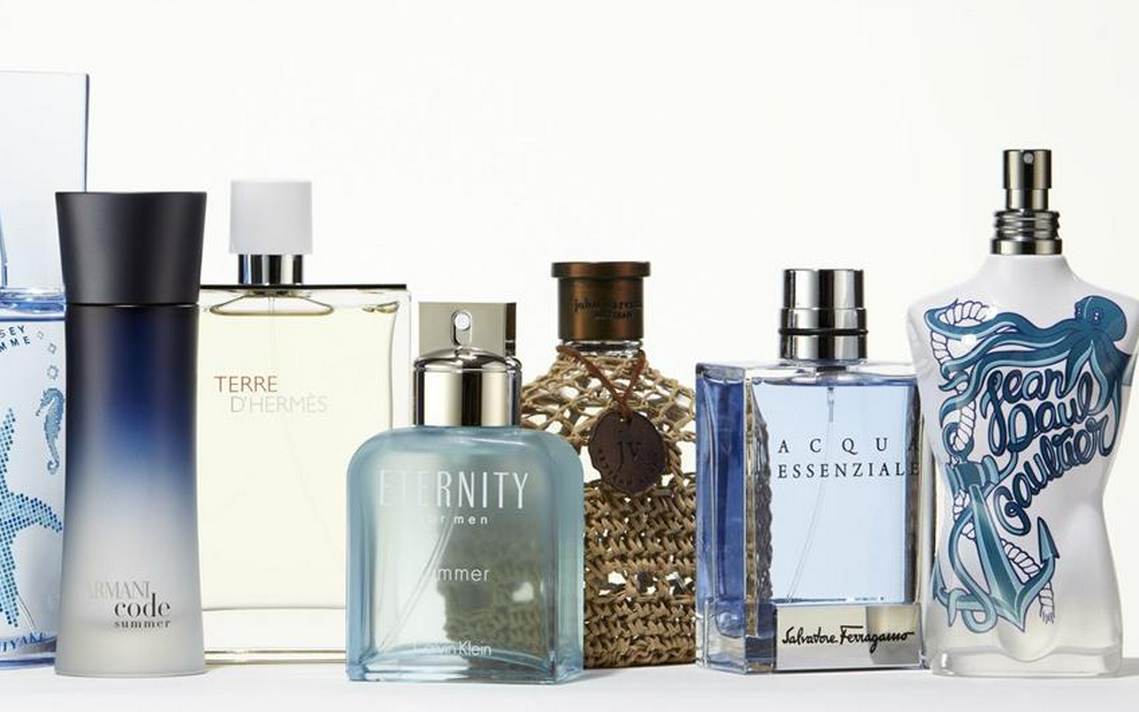
I think I'll just keep these as bathroom decoration
My instinct was to think that this is ridiculous - it is just scented liquids that we are talking about here. They probably do not cost all that much to produce either (they don’t). But that is merely an instinctual reaction, not an intellectual one. I could stop there, but what happens if I try to reason about it?
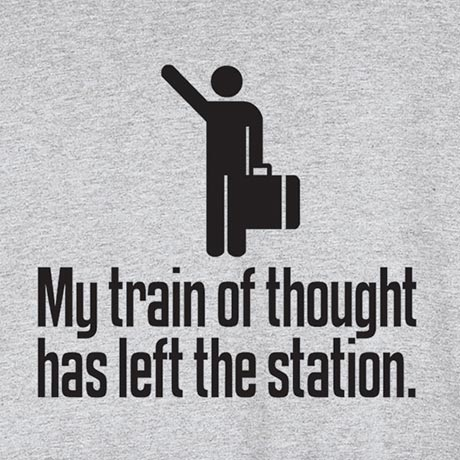
Expensive. Lavishly designed packaging. Huge profit margins for a completely non-essential product. Ads in airplane magazine relying primarily on pictures of supermodels. What are those things a property of? Luxury items — perfume is a luxury. In this age of smartphones, I also own another non-essential item: a watch.
Most mid-range and high-end watches are still mechanical. This is not because the watchmaking industry is backwards. Rather, the watch represents more than just a timekeeping piece. Have you seen the insides of a watch? They are literally the very symbol of complexity and precision in engineering.

We can appreciate the art of watchmaking because we can see the gears turning and imagine how difficult it must be to arrange such tiny pieces to move with such precision. The watch faces are art pieces. However, if a comparable amount of work and expertise went into the design of a perfume, how would we begin to appreciate it? Much of watch design can be explained via pictures sent over fiber optics cable. But scent - how do you send scent? How do you even talk about scent? How do you describe nuances, or the feelings that a smell evokes? Fundamentally, our vocabulary extremely limited in those regards.
So I searched for a documentary that would show me a glimpse of the people behind the fancy bottles, that would paint a portrait of how the industry works. Luckily, BBC created just the documentary I was looking for and it was available on Youtube.
It is well-produced and very interesting. I strongly recommend taking a look. This documentary is where the journey starts to become interesting, as it led me to make observations, some about myself, completely unrelated to perfume.
First stop: Speeding up the video
As I started watching the documentary, I immediately noticed that the video was an hour long, and that was just the first of three parts. “Am I really going to commit 3 hours to learning about perfume?”, I thought. Furthermore, documentaries, such as this one, tend to add filler scenes. We see people in random cities smelling stuff. We walk for a minute with the old executive who shows us around his house before sitting down for the interview. People speak slowly.
Would it not be great if I could get the information in the video more quickly — by speeding it up, for example?
I blogged about this over a year ago. Watching an online course at 1.5x the speed saves me not only time, but the higher density of information also forces me to focus and prevents me from getting bored.
I had not realized that Youtube now gives easy access to setting the video to play at a faster speed. Great! Now I can spend 66% less time procrastinating watching cat videos! Seriously though, if I can get into the habit of always speeding up my videos, this will be a game changer. Despite being full of junk, Youtube remains one of the best sources of great recreational educational material.
Second stop: Meta-watching documentaries
Then, within the first fifteen minutes of the documentary, I felt nostalgia. I used to watch this kind of documentary! Back when in high school when I was living with my parents in Saguenay, they would often have the television open in the evenings on Radio-Canada. Much like PBS, Radio-Canada is a publicly-owned channel. Being government-owned and with the Quebec government caring very much about culture, it has high standards for quality content. I would watch show like Les Grands Reportages, Enquêtes, La Facture, Decouverte in the comfort of our fireplace-warmed couch. These shows would give insider looks into a lot of different industries and keep me up to date with the current news and the major issues of our time.
That was over 5 years ago. I used to consider myself well-knowledgeable about news, politics and social issues. But after going to CEGEP, school began to require more time, career concerns led me to invest more time in writing personal projects and I now had tech news to follow. As much as I still had interest in those topics, social news moved to the sidelines and I never thought of the days where I watched documentaries.
However, I am not writing about this just to reminisce - there was something very, very important that I gained from spending many hours staring at my parent’s television set: perspective. There is another reason why I have been thinking less about social issues in university than I did in high school. In the particular subset of the tech student environment I ended up in, few people are sufficiently interested in these topics to bring them up in an average conversation.
Before the bell rang, my mornings in high school used to be discussions revolving around a newspaper. In the last few years, almost nobody around would spontaneously give their thoughts about the Eurozone Crisis or anything that does not appear in tech news. Even issues that should be relevant to us, such as the recent Chinese stock market crash (partly due to a tech bubble) barely creates a stir. Similarly, it is hard to start discussion about a distant world such as the perfume industry. Most reactions range from “lol who cares” to some reply that does not bring a lot of insight.
In situations like these, responsibility falls onto me to remain excited and try to get people interested by remaining persistent. Nevertheless, I could not totally escape feeling “why are people not more open-minded?”. At the same time, I never liked to use the word “open-mindedness”. I had bad experiences with it. Older adults would throw it around to force you to accept an idea without addressing your reservations which prevent intellectual discussions.
“People SHOULD be doubted. Many people misunderstand this concept. Doubting people is just a part of getting to know them. What many people call ‘trust’ is really just giving up on trying to understand others, and that very act is far worse than doubting. It is actually ‘apathy.’” – Akiyama, Liar’s Game
In any given context, it never seemed to have a definable meaning. But the truth is, I myself am not particularly open-minded. I just happened to watch more documentaries in my childhood. That created in my head a very fundamental notion about the world: there are interesting things to learn beyond what directly touches my daily life, interesting societal questions to discuss. A fundamental notion that is not shared by everybody - not everybody was exposed to documentaries on television. Not everybody had a television in the living room to watch at all!
It may seem obvious that one of my attitudes is a result of a past experience. All my current attitudes are results of past experiences, but a statement so general tells me nothing. Nailing down the source of my interest in social issues leads to an important implication. I cannot expect people to be interested in these topics (which I claim to be important topics) if they have not gone through similar experiences, and without first introducing them to these experiences. And to do that, I need to understand what those experiences are.
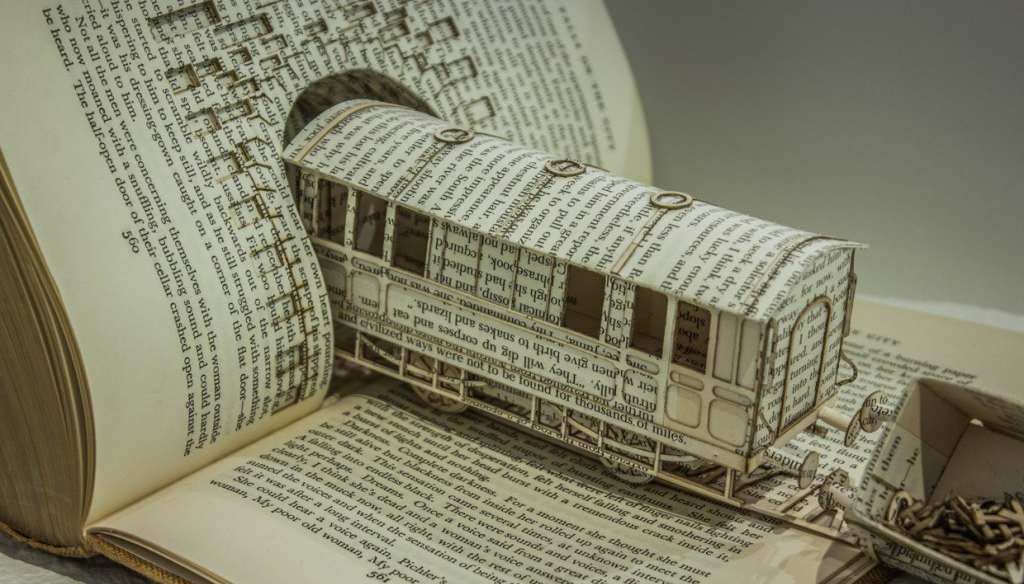
choo choo
Third stop: Back to perfume
“There are more astronauts than there are perfumers.” — The documentary I was talking about earlier.
I finished watching the perfume documentary. The train has left Youtubeland. I got what I hoped for from watching the BBC documentary. I learned that the perfume industry has many different facades. Some prestigious brands have long lineages that trace back a few generations. Modern lifestyle brands always try to enter the market. I own Calvin Klein and Tommy Hilfiger polos but never knew they also sold cologne. The people making the perfumes are trained in highly selective schools and in general, it is very much a insider’s business. The industry is very competitive - thousands of fragrances are released each year and when they fail to become a hit, they end up at a discount in the department store’s shelves.
Then there is the making of the perfumes. The scent comes from a variety of essential oils. This term confused me for the longest time - essential is actually meant as the “essence of” a plant’s smell. Essential oils are a distilled dose of the molecules recognized by our nose. Making perfumes is apparently quite an art — a fraction of a milliliter of one ingredient or another makes all the difference between a brand’s signature scent and a fake product. Sometimes, a ban on an ingredient requires the use of substitutes. People who build these products often stick to the same one for years, if not decades, and can easily identify any variations. The perfumers have developed extensive jargon in an attempt to communicates feelings about scent: sweet, fruity, musky, etc.
There is something intrinsically admirable about people who really know what they are doing, who show true craftsmanship. Watching the documentary definitely helps me see these bottles of aromatic liquids more favorably. Yet, again, I ran into the problem with perfumes described earlier: it is difficult to get a feel of what all that perfume jargon really mean because scent cannot be communicated effictively through words. So there was only one thing left to do.
Buy a pack of 20 samples of men’s cologne on Ebay for 20$.

you saw that right
A stop about cologne on the train of thought should perhaps not be too surprising given that the departure station was about cologne. Yet, this is the kind of action that surprises people. While in the wider society, wearing a scent is not that unusual for men, it is not at all common for people in my environment — for most of them, I am probably the first guy that has ever ordered perfume or that talks about it.
I know a guy who walks around wearing a purse. He enjoys the aesthetics of the purse but more importantly, he says that it opens people up and allows for more interesting conversations. That makes a lot of sense. By wearing a purse, the man establishes himself as someone in no position to judge others and in doing so, allows others to converse without fear of being judged.
I have been looking for this for a long time: a conversation topic I can bring up that will be the starting point of a real conversation. I do not have a particularly loud personality. Neither do people who are generally in my social surrounding. Conversations tend to revolve around mild, socially acceptable topics: school, work, programming, math, the technology industry, things in the Bay Area, entertainment (television/movies/anime). Even when it gets more personal, it usually does not go beyond topics such as our backgrounds, families, etc.
I do not consider mild to mean boring. I enjoy myself in those conversations. However, when it comes to getting to know a person, these topics only provide a glimpse of the inner workings of their mind. Beyond learning about people’s interests, I find interest in understanding how people think. How can I do that? I cannot probe directly by asking questions. That would be too intrusive. Better is to stir things up by talking about something surprising. It is when faced with new situations that a person really reveals themselves. After learning enough Chess or Go, it is possible to play a decent game semi-automatically. Start by moving one of the center pawns, or a knight, perhaps. Place at a stone at the 3–4 or 4–4 point. Those are safe moves that are “good” and have a set of “good” responses to (openings). Moving the edge pawn or starting at the Tengen, however, leaves no room for automatic reactions.
I had been aware of this technique for a while, but had not found good ways to use it regularly (partly because it requires a fair amount of confidence to do so effectively). Bringing any random controversial topic to the table may stir things up, but would not achieve the desired results. It has to be a topic that I genuinely want to talk about because I find it interesting. Interested people are interesting – and to learn more about their personality, it is a prerequisite that the other party joins me in the conversation. Furthermore, I do not want to be the guy that uses psychological tricks on his friends to get to know them better. There is nothing wrong with being conscious of the effects of my actions but I cannot try to learn more about a person by placing them under a magnifying lens. Learning more about people should always come as a fortunate side effect of an interesting conversation.
Talking about perfume is a comfortable start. Again, in all fairness, some of you will observe that wearing perfume (especially if you call it cologne) is not a particularly unusual thing to do. The cologne market is huge for a reason: many many men wear it. It just happens that in my social circle consisting largely of CS student, not many people invest in grooming themselves which makes this a rarity. It’ll do for the moment — I don’t quite have the guts to wear a purse to work yet.
Fourth stop: Money, Intelligence, and Appearance
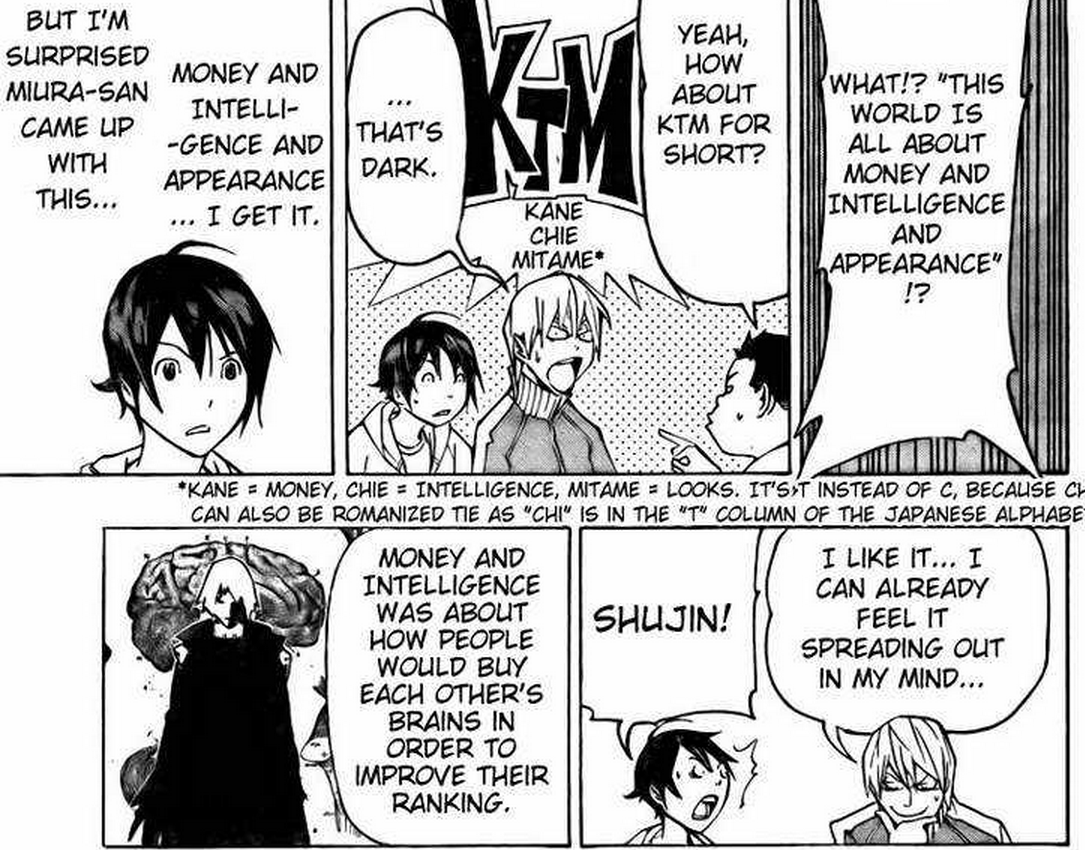
Disclaimer: The train stop is about money. Discussions about money tend to stir up all kind of emotions. Again, keep in mind that this blog post is about a train of thought - a description of a mostly-unfiltered sequence of random things that went through my head. Please refrain from attributing these paragraphs as my permanent opinions, or even opinions at all.
I think that one reason why interest in cologne is looked upon negatively in some social circles is that it presents the person as very superficial. That was (and to some extent, still is) my attitude. Contributing factors to developing this attitude include seeing a lot of ads like these that you don’t quite identify with:
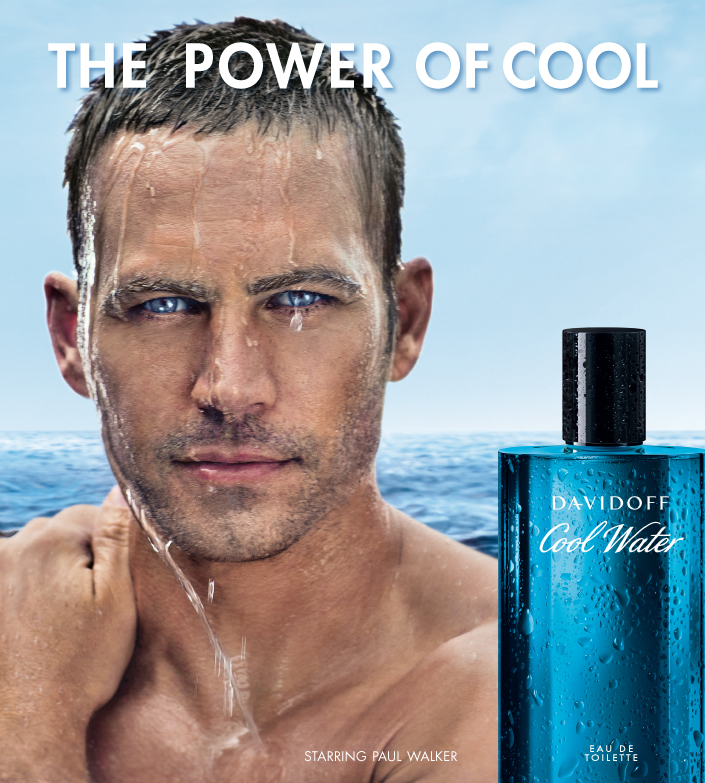
cool guy or douche guy?
The other reason is that perfume is expensive, the cause of which is accurately perceived to be vanity. Like many other luxury items, it is not merely that people will pay a lot of money for the item, rich people may not even buy the item unless it costs a lot of money. After all, how can something be high-end if it is not expensive?
Indeed, the liquid itself is just a fraction of the price.
This feels uncomfortable. Paying 200$ for something whose materials only cost 2$? How ridiculous is that? That is the knee-jerk reaction. I can rationalize spending the price of a movie ticket on trying to understand the language of scent. There’s a few more steps to get comfortable with the idea of paying ten times that amount for something that my nose will quickly get habituated to. But again, I wanted to spend just a little more time thinking about what is really going on. That is when I thought about my own industry. We charge 100$ for software that costs 0$ to distribute? That’s like, printing money out of thin air!
Of course, it is only the second, third, fourth, etc copies that cost 0$. The first copy can cost millions. However, after watching perfumers detail all sorts of advanced oil-extraction techniques, use specialized equipment and invest a great deal of time traveling to understand local markets and cultures, it becomes easy to draw the parallel: the first ounce of perfume costs a lot more than 1.5$.
Thinking about the cost of perfume produced a context in which to think about questions of luxury, social classes, social equality, the gap between the rich and the poor, the idea of value, the value of money, and much more. For example, a question that could easily come up would be “why waste 150$ on a bottle of perfume when it could feed a family in Africa for a month?”. This question is perfectly legitimate, but we rarely spend time thinking about the premises that are necessary for this question to even make sense which we implicitly hold to be true.
The reverse question, “why waste 150$ on food when you could buy perfume?” is nonsensical. This reveals that there is a common understanding that food is much more valuable than smelling good. However, money does not represent physical equivalence; nothing in this world can turn a bottle of perfume into a crate of fruits. This suggests that thinking about feeding African families is a good start towards social change but is not sufficient to get something actionable, something of material value. We often hear statistics about how the top 1% owns 40% of the wealth (or something like that) but if the top 1% spend their money on multi-million dollar paintings, we still need to look for food somewhere else.
The fourth stop of my train of thought was actually more of a gigantic detour in introspection land than a toilet break - there is a lot more I would like to write about, but that would require a spill over into a separate essay lest I stop it now.
The last stop: A meta-comment about writing and inspiration
My train of thought has already run for quite a distance now. A distance of what, over 3000 words by now?
I have already gotten quite a few insights from what started with a Google search about fragrance. The word to describe this, I believe, is inspiration. I was inspired to write all these paragraphs. This is an issue that I have had in the last year. I have a blog, but there has been no new posts for over a year. It is not that I lack ideas. There are many topics that I have been wanting to write about, but most linger around in my notes as outlines of blog posts, skeletons without the flesh. Often, the original spark that made me want to write dies out before I can complete the writing. My attempts at sitting down to write get nowhere.
Maybe the key is not to start with the intent of writing, but rather get in the mood of introspection via reading, watching, learning something that inspires me. Not anything. Something unusual.
Saying this makes me feel like I am pretending to be an artist, but ultimately results will be what matters. However, it is hard to predict when I will find something that will inspire me. I could use a psychological trick like rediscovering old content, exposing myself to the trigger of my original insights, so that I can ride on them once again.
I certainly did not expect a search about perfume to lead into all these tangents. Perhaps there is something to be learned from that.

